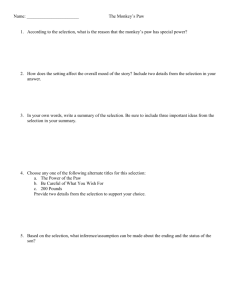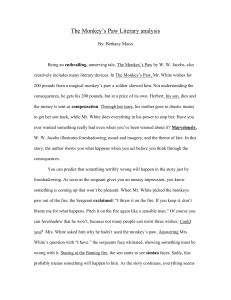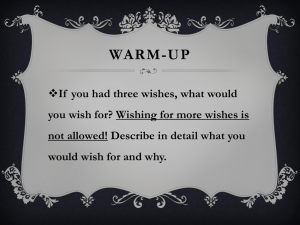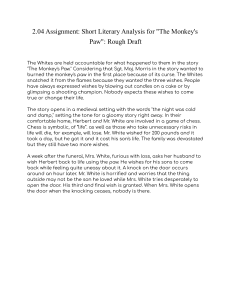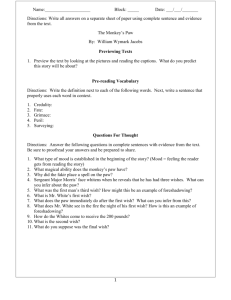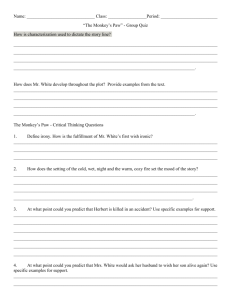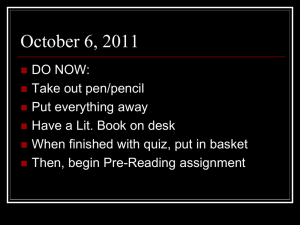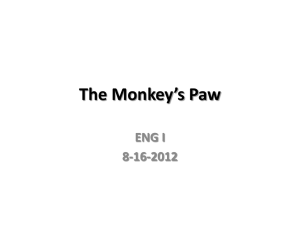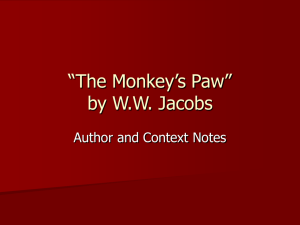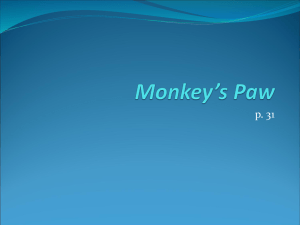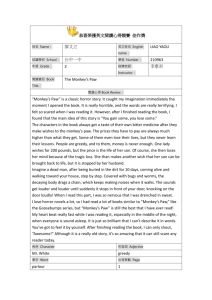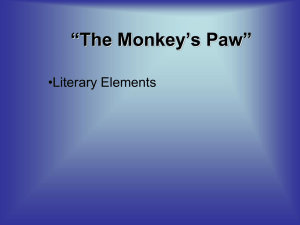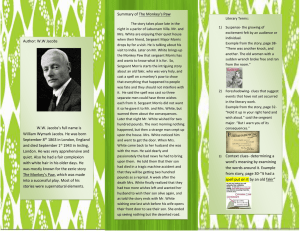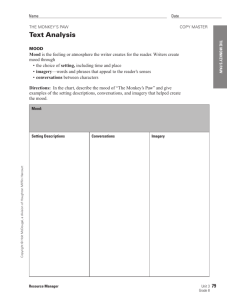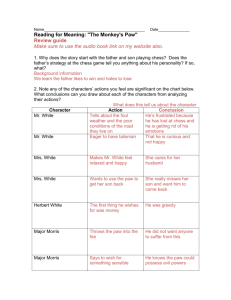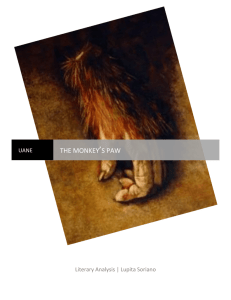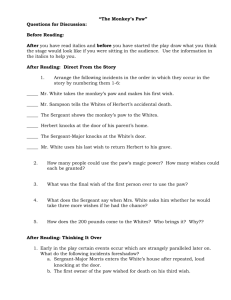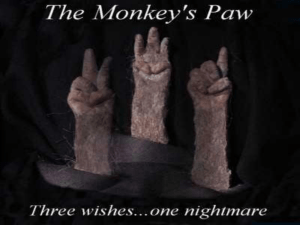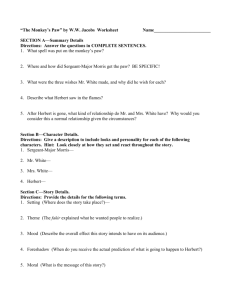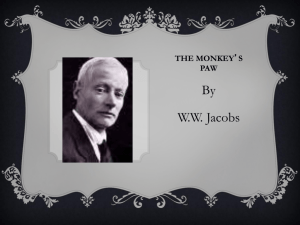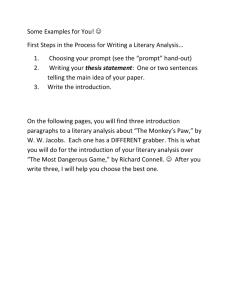The Monkey's Paw Literary analysis
advertisement
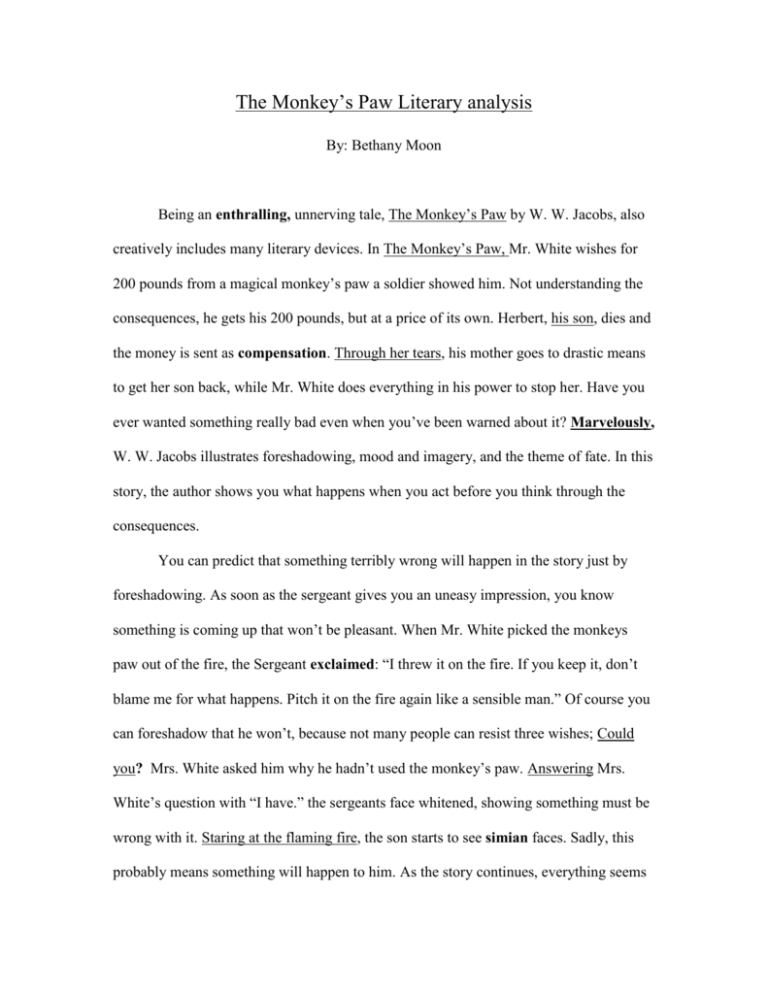
The Monkey’s Paw Literary analysis By: Bethany Moon Being an enthralling, unnerving tale, The Monkey’s Paw by W. W. Jacobs, also creatively includes many literary devices. In The Monkey’s Paw, Mr. White wishes for 200 pounds from a magical monkey’s paw a soldier showed him. Not understanding the consequences, he gets his 200 pounds, but at a price of its own. Herbert, his son, dies and the money is sent as compensation. Through her tears, his mother goes to drastic means to get her son back, while Mr. White does everything in his power to stop her. Have you ever wanted something really bad even when you’ve been warned about it? Marvelously, W. W. Jacobs illustrates foreshadowing, mood and imagery, and the theme of fate. In this story, the author shows you what happens when you act before you think through the consequences. You can predict that something terribly wrong will happen in the story just by foreshadowing. As soon as the sergeant gives you an uneasy impression, you know something is coming up that won’t be pleasant. When Mr. White picked the monkeys paw out of the fire, the Sergeant exclaimed: “I threw it on the fire. If you keep it, don’t blame me for what happens. Pitch it on the fire again like a sensible man.” Of course you can foreshadow that he won’t, because not many people can resist three wishes; Could you? Mrs. White asked him why he hadn’t used the monkey’s paw. Answering Mrs. White’s question with “I have.” the sergeants face whitened, showing something must be wrong with it. Staring at the flaming fire, the son starts to see simian faces. Sadly, this probably means something will happen to him. As the story continues, everything seems to be going well, until there was a stranger outside “who, peering in an undecided fashion at the house, appeared to be trying to make up his mind to enter.” Since we know that no good can come from the monkey’s paw, we can predict the stranger has appalling news. Foreshadowing can be done with a simple quote to a whole paragraph. As you know, in a story there must be a mood and imagery to create that mood. Representing the nasty setting, Mr. White describes Pathaway: “of all the beastly, slushy, out of the way places to live in, this is the worst. Pathaway’s a bog, and the road’s a torrent” For a creepy effect, the author added “The candle-end was throwing pulsating shadows on the ceiling and walls, until, with a flicker larger than the rest, it expired” After Herbert died, the mood changed to distressing for a little bit, “The house steeped in shadow and silence”. Distraught and depressed, Mr. and Mrs. White have finally realized the result of their greedy actions making the story gloomy. Mrs. White, who became overwhelmed by her misery, once more changed the mood. Realizing that they still had two wishes, she wished for her son back, which makes the story suspenseful.
